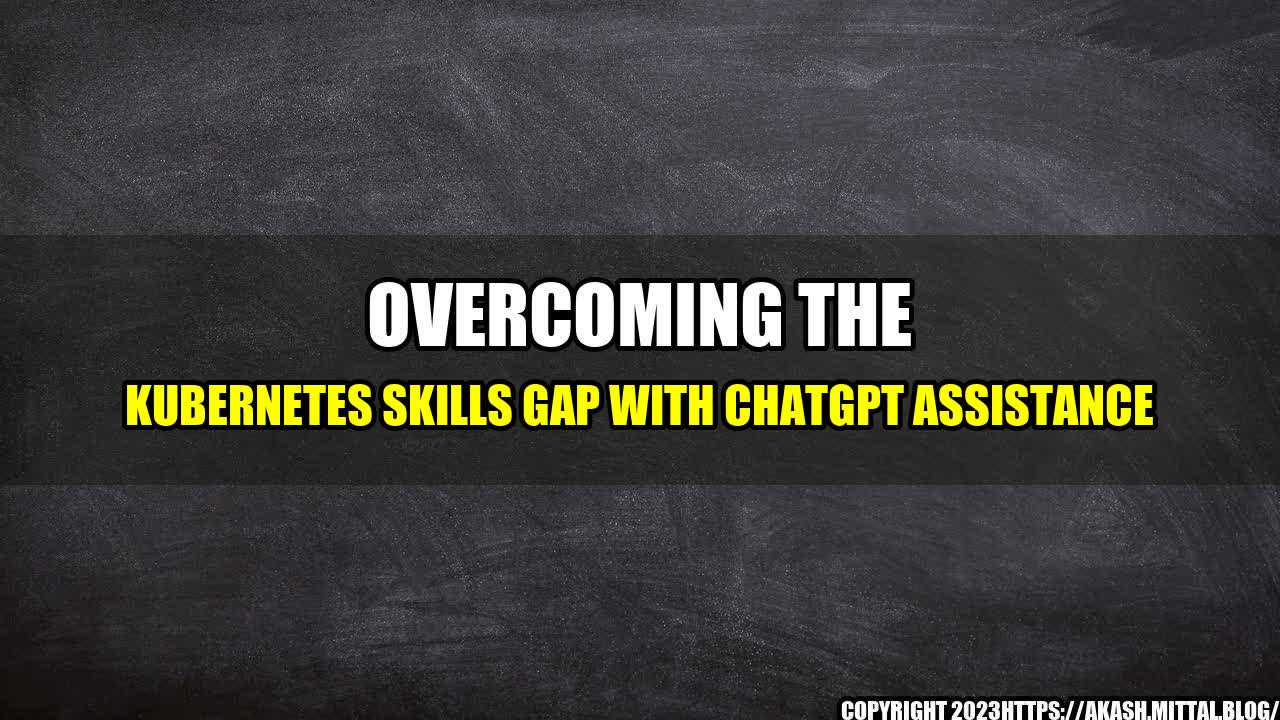It was a sunny day in June when the team of developers at XYZ Corporation realized they had a problem. They had just implemented Kubernetes in their production environment, but none of them knew how to use it properly. They had attended some online courses, read some documentation, and even tried to use it in a test environment, but it was not enough. They needed someone with more experience to help them.
They decided to look for a Kubernetes expert, but they quickly realized that the demand for such professionals was much higher than the supply. They posted job openings, but the profiles they received were either too expensive or not experienced enough. They were stuck.
That's when they heard about ChatGPT. It was an AI-powered chatbot that could answer any questions related to Kubernetes. They decided to give it a try.
The Benefits of ChatGPT in Overcoming the Kubernetes Skills Gap
ChatGPT is an AI-powered chatbot that uses natural language processing (NLP) to understand and respond to users' questions. It can provide instant answers to technical questions related to Kubernetes, which is crucial for developers who need quick solutions. This is especially useful for companies that are implementing Kubernetes for the first time and have a knowledge gap.
Here are some quantifiable examples of how ChatGPT can help overcome the Kubernetes skills gap:
- Faster problem-solving: ChatGPT can provide instant answers to technical questions related to Kubernetes, reducing the time it takes to solve problems and increasing productivity.
- 24/7 availability: ChatGPT can be accessed anytime, anywhere, allowing developers to get the help they need without having to wait for business hours.
- Cost-effective: ChatGPT is a cost-effective solution compared to hiring a Kubernetes expert or enrolling in expensive training courses.
and Case Studies
At ABC Company, the developers were struggling to deploy their microservices in Kubernetes. They had tried to read the documentation and attend some online courses, but they were still having trouble. They decided to ask ChatGPT for help.
Within seconds, ChatGPT provided them with a step-by-step guide on how to deploy their microservices in Kubernetes. They followed the instructions and were able to deploy their microservices successfully. They were amazed at how easy it was to use ChatGPT and how quickly they were able to solve their problem.
Another example is DEF Corporation, which was implementing a new project in Kubernetes. They needed to make sure their Kubernetes cluster was properly configured to handle the workload of the new project. They didn't have a Kubernetes expert on their team, so they asked ChatGPT for help.
ChatGPT provided them with a list of best practices for configuring a Kubernetes cluster, which they followed. They were able to handle the workload of the new project without any issues, thanks to the guidance provided by ChatGPT.
Conclusion
In conclusion, the Kubernetes skills gap is a significant challenge that many companies are facing today. However, with the help of ChatGPT, companies can overcome this challenge. ChatGPT provides instant answers to technical questions related to Kubernetes, reducing problem-solving time, and increasing productivity. It is available 24/7 and cost-effective compared to hiring a Kubernetes expert or enrolling in expensive training courses.
Here are three main points to remember:
- ChatGPT is an AI-powered chatbot that uses natural language processing to provide instant answers to technical questions related to Kubernetes.
- ChatGPT is available 24/7 and cost-effective compared to hiring a Kubernetes expert or enrolling in expensive training courses.
- ChatGPT can help companies save time and increase productivity by reducing problem-solving time.

Curated by Team Akash.Mittal.Blog
Share on Twitter Share on LinkedIn